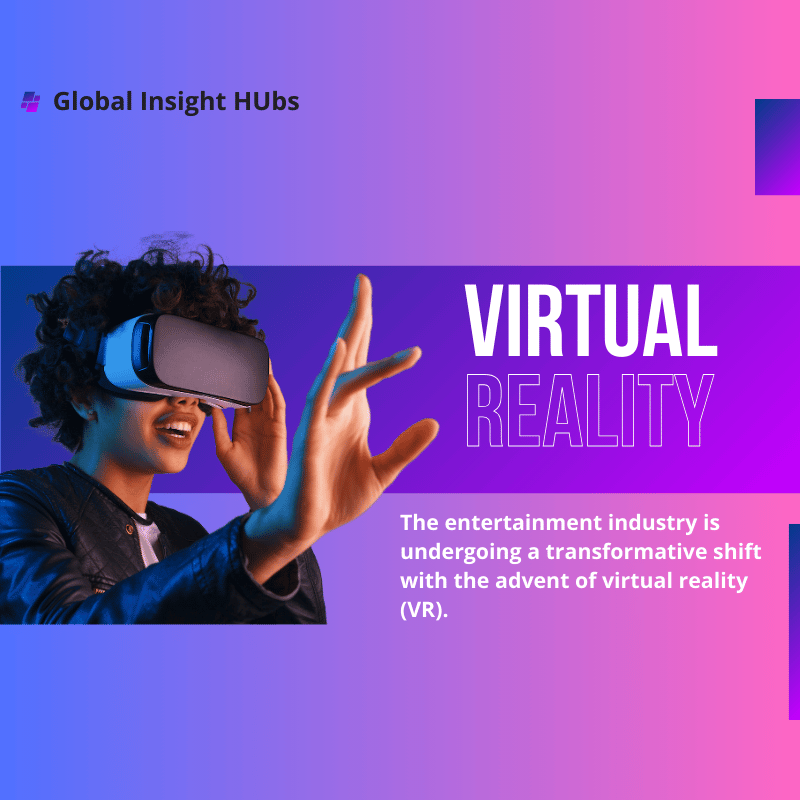
Virtual Reality: Revolutionizing the Entertainment Industry
Virtual Reality: Revolutionizing the Entertainment Industry
The entertainment industry is undergoing a transformative shift with the advent of virtual reality (VR). This cutting-edge technology is reshaping how we experience movies, games, concerts, and more, offering immersive experiences that were once the realm of science fiction. Let’s explore how virtual reality is revolutionizing the entertainment landscape and what it means for the future.
Immersive Gaming Experiences
Virtual reality has taken gaming to new heights, providing players with a deeply immersive experience. VR headsets like the Oculus Quest, PlayStation VR, and HTC Vive transport gamers into lifelike worlds where they can interact with their surroundings in real-time. This level of immersion enhances gameplay and offers a unique way to experience stories and challenges.
Key Benefits:
- Enhanced Interaction: Players can physically move and interact within the game environment.
- Realistic Experiences: High-resolution graphics and 3D audio create believable worlds.
- Social Connectivity: Multiplayer VR games allow players to connect and interact in virtual spaces.
Transforming Cinema and Storytelling
Virtual reality is also making waves in the film industry. VR films and experiences offer viewers a 360-degree perspective, allowing them to become part of the story. This new form of storytelling breaks the traditional boundaries of cinema, enabling directors to engage audiences in unprecedented ways.
Key Benefits:
- Immersive Storytelling: Viewers feel as though they are inside the narrative.
- Interactive Elements: Audiences can influence the storyline through their choices.
- Expanded Creativity: Filmmakers can explore innovative storytelling techniques.
Live Events and Concerts
VR technology is revolutionizing live events by bringing concerts, sports, and theater performances to audiences worldwide. With VR headsets, fans can enjoy front-row seats to their favorite events without leaving their homes. This accessibility broadens the reach of live entertainment and offers new revenue streams for artists and organizers.
Key Benefits:
- Accessibility: Fans can attend events from anywhere in the world.
- Unique Perspectives: Experience events from multiple angles, including backstage views.
- Interactive Features: Engage with performers and other fans in virtual spaces.
Virtual Reality Theme Parks
Theme parks are embracing VR to enhance attractions and create new experiences. By integrating VR with rides, parks offer visitors a blend of physical thrills and virtual adventures. This fusion of technology elevates traditional attractions and captivates audiences with limitless possibilities.
Key Benefits:
- Innovative Rides: Experience fantastical worlds beyond physical limitations.
- Personalized Adventures: Tailor experiences based on individual preferences.
- Safety and Cost Efficiency: Reduce risks and costs associated with physical rides.
Challenges and Considerations
While virtual reality holds great promise, there are challenges to address:
- Accessibility: High-quality VR equipment can be expensive for consumers.
- Technical Limitations: Motion sickness and latency issues remain concerns.
- Content Development: Creating compelling VR content requires significant investment and expertise.
Conclusion
Virtual reality is undoubtedly revolutionizing the entertainment industry by offering immersive, interactive, and innovative experiences. As technology continues to advance, VR will become more accessible and integral to our entertainment consumption. Embracing this transformation opens up exciting possibilities for creators and consumers alike, heralding a new era where entertainment knows no bounds.
